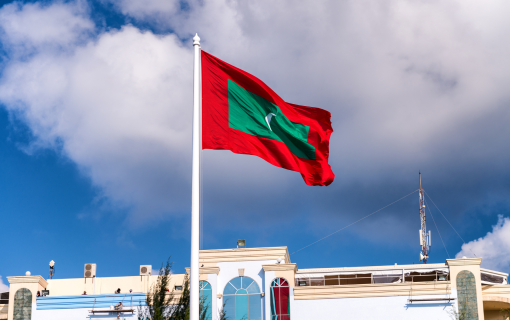Witnessing Pakistan’s Historic Election
Pakistan held general elections on May 11, 2013, marking the first time in the nation's history that a civilian government has carried out the full length of its term and handed power to another civilian government. A number of improvements were made ahead of the election to ensure a more credible and transparent poll. This included updating the voter list, increasing the number of polling stations and expanding communication with the public. Ole Holtved, IFES Chief of Party in Pakistan, answers some questions about Election Day.
How was the mood on Election Day?
The overall mood in the country was very positive. In the vast majority of polling stations, voters, polling officials and political party agents enjoyed a calm day, celebrating democracy.
In some cases, voters had to queue or endure cramped locations, but largely did so with patience and eagerness.
How was security?
While there were several tragic incidents of violence leading up to and on Election Day, in the Pakistani context, security was better than could have been hoped for. The security personnel performed their role without interfering in the electoral process.
How was turnout and how did it differ by province?
The official numbers are yet to be made public, but the Election Commission of Pakistan has assessed the turnout to be around 60 percent, which is an increase from the 44 percent turnout in the 2008 general elections. Voters in most provinces defied threats of violence and came out in large numbers.
How many domestic and international observers witnessed the polls?
By far the largest observation effort was made by the Free and Fair Election Network, which accredited 43,000 domestic observers. Other observer missions include the European Union Election Observation Mission; the National Democratic Institute in cooperation with the Asian Network for Free Elections; and the Aurat Foundation in cooperation with Gender Concern International.
What impact did the new electoral roll have on the process?
The improved electoral roll was extremely effective in eliminating duplicate voting and impersonation. The roll had been de-duplicated using biometrics. Further, for the first time, the printed roll used in the polling stations included photos of the voters. These features seem to have virtually eliminated the use of tendered and challenged ballots.
How did the improvements to the process, such as the new electoral roll and the enhanced transparency, affect the credibility of the poll?
The increased turnout illustrated trust in the process and the Election Commission. While complaints are being filed against some alleged irregularities, it is a testament to the credibility of the process that the former ruling party has admitted defeat and will step down peacefully. This is a milestone in Pakistan’s history.
When are official results expected?
As of 1:00 p.m. on May 14, the preliminary results are almost complete. Individual returning officers will scrutinize the materials from each polling station in the presence of political party candidates and agents; address any inaccuracy; and count postal ballots.
Official results will be declared with 14 days.
When will the elected take office?
The newly-elected assembly members will take office by the end of May.









